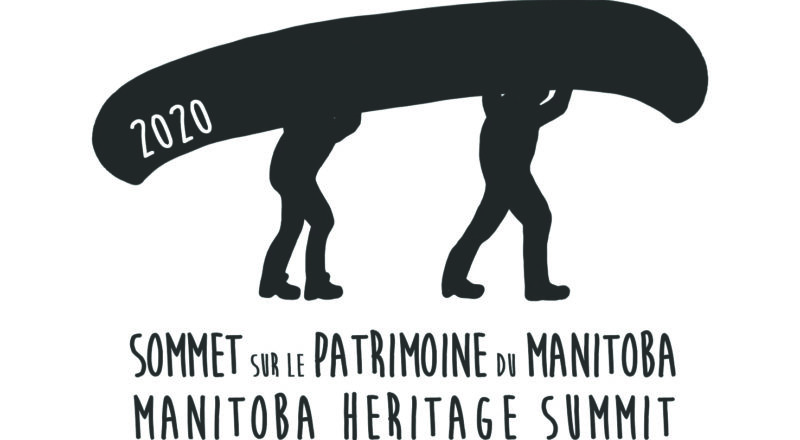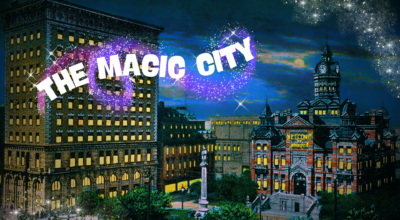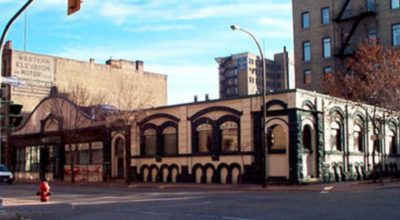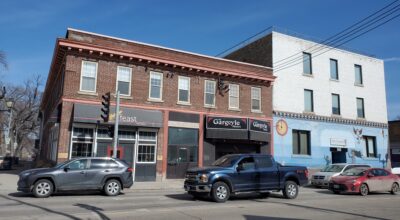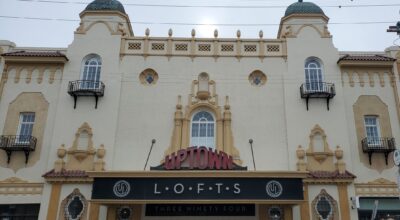
/ Blog
October 7, 2020
Making History: The 2020 Manitoba Heritage Summit
Heritage belongs to everyone. It roots us in the past, and guides us into the future. It builds bridges and reminds us we belong, uniting us as a community. It pulls on our heartstrings and it gives us hope, all while enriching our day to day lives. It is artifacts and art, stories and songs, buildings and books, memories and movies, recipes and records, landscapes and loved ones, and so much more. It is all the pieces of the past and the records we keep of the past, a vast and expansive collection of the human experience, forever expanding and embracing a more diverse assemblage. Priceless and irreplaceable while beloved and controversial, the task of conserving our heritage is a monumental one. Throughout Manitoba many different organizations, institutions, governments and individuals take on this challenge, firmly believing in the importance of passing on our heritage to the next generation. On October 1, 2020, over 340 of these people and groups gathered online for the inaugural Manitoba Heritage Summit, eager to discuss the state of our diverse heritage in the province. It was an historic summit that hoped to foster cooperation and creativity, as the heritage community seeks opportunities for solutions to the many challenges they face and so they can save our past for future generations.
The 2020 Manitoba Heritage Summit was the first large scale gathering of its kind for those involved in the heritage sector throughout the province. It was hosted by eight provincial heritage associations (PHAs): the Association for Manitoba Archives, La Société historique de Saint-Boniface, the Association of Manitoba Museums, the Manitoba Archaeological Society, Heritage Winnipeg, the Manitoba Genealogical Society, the Jewish Heritage Centre of Western Canada and the Manitoba Historical Society. Anyone connected to or interested in heritage was encouraged to attend, from professionals to amateurs, government officials to community members. It had been hoped that participants would be able to gather at the Millennium Centre in Winnipeg for the Summit with an online option for those unable to attend in person, but due to Covid-19 the Summit was moved to a completely online format. To accommodate this change, the Tapestry Room at the Millennium Centre at 389 Main Street was repurposed as the “command center” for the Summit, with key figures broadcasting live from the historic building.
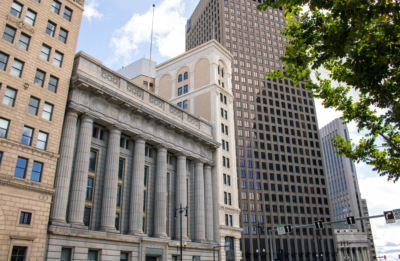
The broadcast hub of the 2020 Manitoba Heritage Summit was the Millennium Centre, built in 1910 as the Bank of Commerce, it is located in Winnipeg’s historic Exchange District.
Source: Heritage Winnipeg
Undeterred by the change in format, the Summit moved forward with confidence, believing that the issues at hand were too important to allow for the Summit to be cancelled. The objectives of the Summit were to:
· Identify common themes among PHAs relating to heritage and history in Manitoba;
· Identify present and future opportunities and challenges that will be beneficial for the delivery of heritage-related programs and the management of heritage resources around Manitoba;
· Foster improved collaboration and communication between PHAs and smaller heritage facilities around the province;
· Prepare a white paper on the state of heritage in Manitoba and its development over the next 10 to 20 years, toward a long-term vision for Manitoba’s 200th anniversary in 2070.
Funding from the Province of Manitoba and The Winnipeg Foundation ensured the Summit was free to take part in, allowing for maximum participation. Throughout the province heritage enthusiasts from all walks of life were excited to take part in this ground breaking event!
The 2020 Manitoba Heritage Summit opened with greetings from various officials and the keynote presentation, “2020 Vision, Disrupted: the Heritage Movement and What Matters Now” from Natalie Bull, Executive Director of the National Trust for Canada. Bull’s talk highlighted the challenges historic sites have faced due to Covid-19, but also framed it as an opportunity to reevaluate how we have been operating and considered a possible fresh approach. This was deemed especially important in the context of historic monuments, once a standard means of celebrating historic figures, now being toppled as our interpretation of history has broadened and changed. Bull emphasized reconciliation and ensuring those underrepresented or absent from history are empowered to tell their own story, even if the public reaction is not always positive. Sustainability was the second topic touched on, as it becomes an ever pressing issue in a global climate crisis. Bull firmly believes that maintaining and adaptively reusing built heritage, not only supports the economy but is the only way Canada will uphold its commitment to the Paris Agreement. Yet people ultimately are far more interested in saving our heritage because of their emotional connection to it, further emphasizing the point the the heritage sector is in the people business, not the old building business. The presentation closed with a reminder that we need to work together and share the load, and although we may not be perfect in undoing the wrongs of the past, we must always strive to do better.
The eight PHAs hosting the summit then each took an opportunity to speak to the challenges they are facing and solutions they are working towards. Four major topics stood out: lack of resources, digitization, decolonization and collaboration. Funding was the biggest resource that was lacking, but members, volunteers, space and leadership were also commented on. Costs keep going up while there is less money coming in, resulting in staff spending more time seeking funding instead of doing meaningful work. Fortunately, volunteers carry much of the load, but they are growing older and burning out. Digitization is seen as a great way to reach a younger crowd to get them interested and involved and address the storage crisis. But digitization is also expensive to set up, requires training to use and ongoing maintenance, and is not always appropriate for archiving. Decolonization is at the forefront of many associations’ minds, who wish to build meaningful relationships and support Indigenous groups in reclaiming their past. This ties in with the importance of collaboration, not only with underrepresented groups but with other heritage groups, young people, community organizations, governments and more. The resounding consensus was if we do not work together, Manitoba’s heritage will parish.
The first panel discussion was on economics, financial sustainability and partnerships, featuring Angela Mathieson (President & Chief Executive Officer, CentreVenture Development Corporation), Elliot Sims (Associate Clerk of the Executive Council, Legislative and Regulatory Affairs, Province of Manitoba), Rick Frost (Chief Executive Officer, The Winnipeg Foundation) and Wins Bridgman (BridgmanCollaborative Architecture). Partnerships was the key theme that arose in this panel discussion. Mathieson discussed the challenges in conserving built heritage, namely the poor condition of many of Winnipeg’s historic buildings, which can only be overcome when the community, developers and government work together. Sims also advocated for an holistic approach to heritage where all levels of government worked together, setting the example as leaders in collaboration and maintenance of built heritage. Frost discussed
The Winnipeg Foundation’s work, partnering with heritage groups and the province, while supporting young people interested in heritage through scholarships. Bridgman spoke of his experience redeveloping Barber House, and of the many long term partnerships that were formed during the project. It was a real success story, where people with different points of view and objectives were able to come together to create a community hub that has supported positive growth in the community. In addition to partnerships, endowment funds were also touched on several times. Both Sims and Frost spoke to the Province of Manitoba’s creation of an endowment fund, the Manitoba Heritage Trust Program, which is administered by The Winnipeg Foundation. The program is aimed at helping heritage groups become self sufficient for the long term, no longer relying on one time grants.
Decolonizing heritage in Manitoba was by far the most popular panel discussion of the Summit. There were three panellists, KC Adams (Artist and Educator), Kevin Brownlee (Curator of Archaeology, Manitoba Museum) and Adele Perry (Distinguished Professor of History and Women’s and Gender Studies, University of Manitoba) along with the presentation “Changing Times and the Need for a New Flag” by Stan Fontaine (Elder, Sagkeeng First Nation). Adams spoke of her experience with Indigenous pottery, being disappointed in how it was represented in museums and feeling far more connected to where she came from through hands on learning experiences. Brownlee addresses the push back he faced from his community as an Indigenous archaeologist, in a field with a long legacy of colonialism. Perry touched on her work on reframing history through an Indigenous perspective, discussing the case of the Shoal Lake Aqueduct. All the speakers encouraged a revision of history, acknowledging the mistakes that have been made, allowing for Indigenous people to take the led in reclaiming their past, and presenting the true complexity and sophistication of Indigenous history. Fontaine concluded the session by advocating for a new provincial flag for Manitoba, with Manitoba 150 being the opportune time to make it more representative of the people and the place of the province, not British colonizers.
The next panel tackled challenges and opportunities for heritage in rural Manitoba. Monique Brandt (Executive Director, Association of Manitoba Museums), Ralph Groening (President, Association of Manitoba Municipalities), Christy Henry (Archivist, Brandon University) and James Kostuchuk (Chair, Portage Municipal Heritage Advisory Committee) spoke about the unique obstacles faced in heritage preservation and commemoration in rural areas, often with low populations. Their talks very much echoed the sentiment of previous speakers, with lack of resources being the most pressing issue on everyone’s mind along with the pros and cons of digitization. The isolation experienced by rural heritage organizations was another common thread, along with the problems that arise from it. Everyone acknowledged that there is strength in numbers and organizations would be far more successful if they cooperated instead of competed with one another. Residents in rural areas are clearly very interested in their local history and that interest should be capitalized on as heritage can show an amazing return on investment. Speakers encouraged a methodical, well planned approach focused on progress, not perfection, and recognizing that ultimately not all history can be saved.
The final panel discussion of the day was on youth, technology and green sustainability with Ross Hiebert (Business Development Manager, On This Spot), Glen Murray (Former Mayor of Winnipeg), Ross Metcalfe (Retired Superintendent, Interlake School Division) and James Dykstra (Red River Heritage Fair) speaking. Hiebert focused on the On This Spot app, which encourages people to engage with history through photos and walking tours. The app is an example of how to effectively reach a younger audience and thrive in the digital era, all while remaining affordable enough for small communities to take part. Murray encouraged Winnipeg to become a leader in combining the tech industry and built heritage, creating a circular economy where everyone thrives. He believes that the warehouses of Winnipeg’s Exchange District are the perfect location for tech companies, which covet authentic character and the buildings already contain infrastructure that could be use to redistribute the excess heat tech produces. Metcalfe emphasized the need for using hands on methods to teach youth about history and how organizations must make a point of seeking out, welcoming and respectfully engaging with youth. Lastly, Dykstra spoke passionately about the Red River Heritage Fair; a fun, one day event where kids can learn about and appreciate the importance of history. While the Fair is beloved by those who take part and works hard to embrace new ideas and all learning styles, a lack of funding and support from teachers make the event a challenge to put on.
After closing remarks by the Summit’s facilitator, Sheldon McLeod and a performance of “One Voice” by the Winnipeg Symphony Orchestra, it was clear that the 2020 Manitoba Heritage Summit had been a huge success! Participants were thrilled with the opportunity to learn from the experiences of others, share in their challenges and work on realizing their collective strengths. In our expansive province where some many labour alone wondering is their hard work will ever be appreciated, it was wonderful to spend a day conversing with others who share in their passion for heritage and could offer support and comradery. The results of the Summit will be summarized in a white paper, working to create a long term vision for heritage in Manitoba. Hopefully the Manitoba Heritage Summit will become an annual event, building on the insights of 2020 and fostering partnerships that will see Manitoba’s heritage sustained for generations to come!
THANK YOU TO THE SPONSOR OF THIS BLOG POST:

Written by Heritage Winnipeg.
SOURCES:
Manitoba Heritage Summit 2020 | Manitoba Heritage Summit
What is meant by "cultural heritage"? | UNESCO





